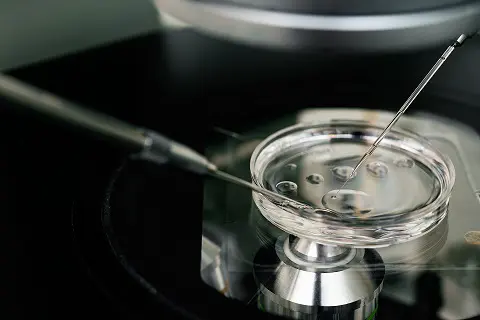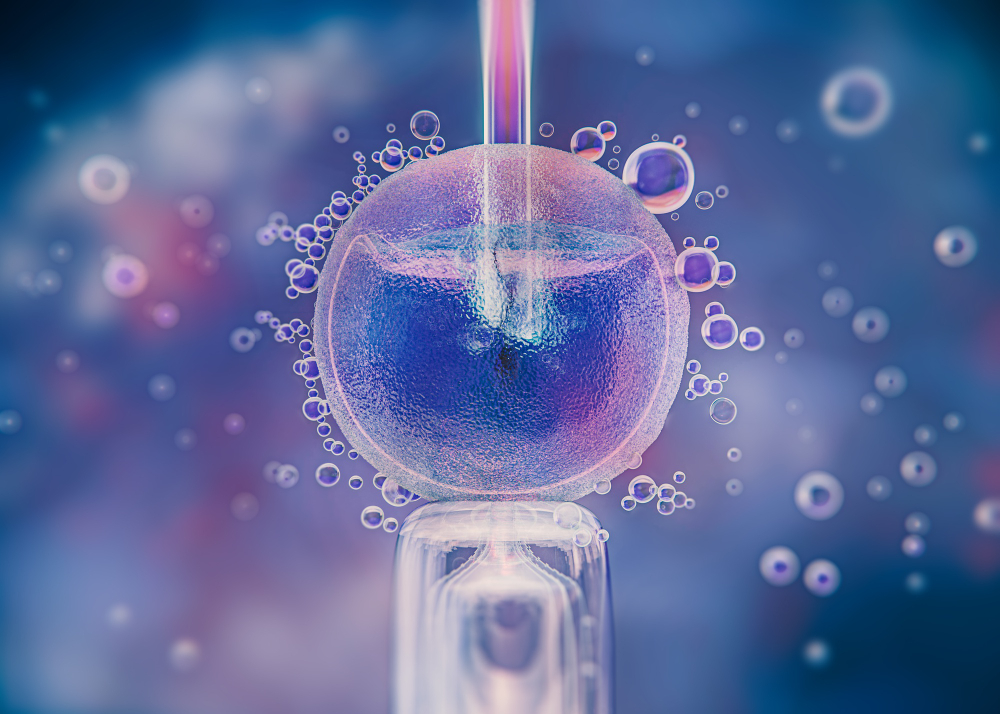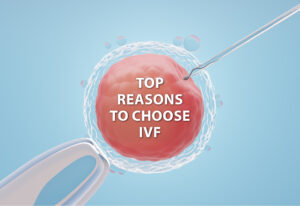Intracytoplasmic Sperm Injection (ICSI)
Intracytoplasmic Sperm Injection (ICSI)
Intracytoplasmic Sperm Injection (ICSI) is an advanced fertility treatment that offers hope for couples dealing with male infertility or other complex reproductive issues. This highly specialized technique involves the direct injection of a single sperm into an egg to facilitate fertilization. It is typically used in conjunction with In Vitro Fertilization (IVF) when standard fertilization methods are not likely to succeed.


How Does ICSI Work?
ICSI is a precise procedure that involves the following key steps:
Ovarian Stimulation: Similar to IVF, the woman undergoes ovarian stimulation, usually with fertility medications, to produce multiple mature eggs.
Egg Retrieval: Once the eggs are ready, they are carefully retrieved from the woman’s ovaries through a minor surgical procedure.
Sperm Collection and Preparation: The male partner provides a sperm sample (or sperm is obtained from a donor). The sperm is then carefully prepared in the lab, where the healthiest sperm are selected.
Sperm Injection: A single sperm is selected and injected directly into the center of the egg using a fine, specialized needle. This is the key difference between ICSI and traditional IVF, where sperm are placed in a petri dish to naturally fertilize the eggs.
Embryo Culture: The fertilized eggs (embryos) are monitored for a few days in the lab. Embryologists assess their development and quality.
Embryo Transfer: One or more of the best quality embryos are selected for transfer into the woman’s uterus. The remaining embryos can be frozen for future use if needed.
Pregnancy Test: About two weeks after the embryo transfer, a pregnancy test is performed to confirm whether the treatment was successful.
Who Can Benefit from ICSI?
ICSI is especially beneficial for couples with male infertility or situations where traditional IVF fertilization is unlikely to work. It is commonly recommended for:
Male Factor Infertility: When the male partner has a low sperm count, poor sperm motility, or abnormal sperm morphology, ICSI can bypass these issues by directly injecting sperm into the egg.
Previous IVF Failures: If previous IVF attempts failed to produce fertilization, ICSI can improve the chances of success by overcoming challenges in sperm-egg interaction.
Sperm Extraction: In cases where sperm cannot be obtained through ejaculation (such as in cases of severe male infertility or blockages), sperm can be surgically extracted directly from the testicles, and ICSI can still be used.
Frozen or Donor Sperm: ICSI can be particularly useful when using frozen sperm or sperm from a donor, as it maximizes the chances of successful fertilization.
Why Choose ICSI?
- Higher Success Rate with Male Infertility: ICSI is particularly effective for male infertility, including issues such as low sperm count or sperm motility problems.
- Enhanced Fertilization: Unlike traditional IVF, which relies on natural sperm-egg fertilization, ICSI guarantees that each egg is fertilized by a single sperm.
- Suitable for Severe Cases: ICSI offers a solution for couples with severe male factor infertility, even in cases where sperm quality is compromised.
ICSI Success Rates
The success rate of ICSI varies based on a number of factors, including the age of the woman, the quality of the sperm, and the health of the embryos. On average, the success rate for ICSI is similar to traditional IVF, ranging from 30-50% per cycle. However, ICSI can significantly improve the chances of fertilization in cases of male infertility or previous IVF failures.
Is ICSI Right for You?
ICSI is a highly specialized treatment, and it is not suitable for every couple. The decision to pursue ICSI is based on a thorough evaluation of both partners’ fertility health. A fertility specialist will assess your individual situation, review your medical history, and recommend the most appropriate course of action, whether that’s ICSI or another fertility treatment.

Best Infertility Doctor in Gurgaon, Dr. Anshika Lekhi, a renowned IVF specialist, offers exceptional infertility treatments.
Pages
Contact Us
- 7505 Basement Bougainville Street, near Supermart 2, Sector 43, Gurugram, Haryana 122009
- 98735 24270
- info@thefertilife.com
Updates
Check New updates below.


Copyright ©2025 | All Rights Reserved.
